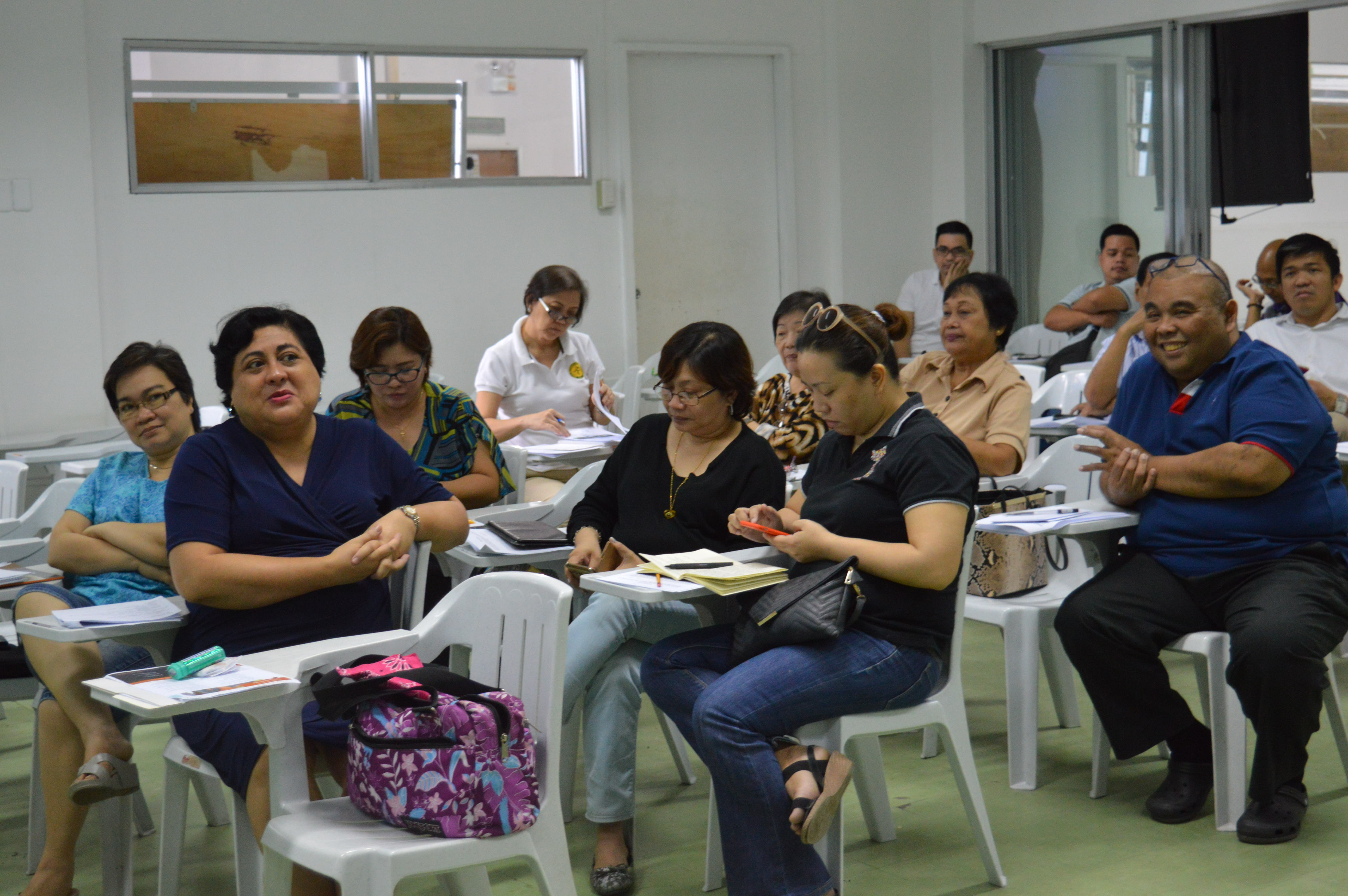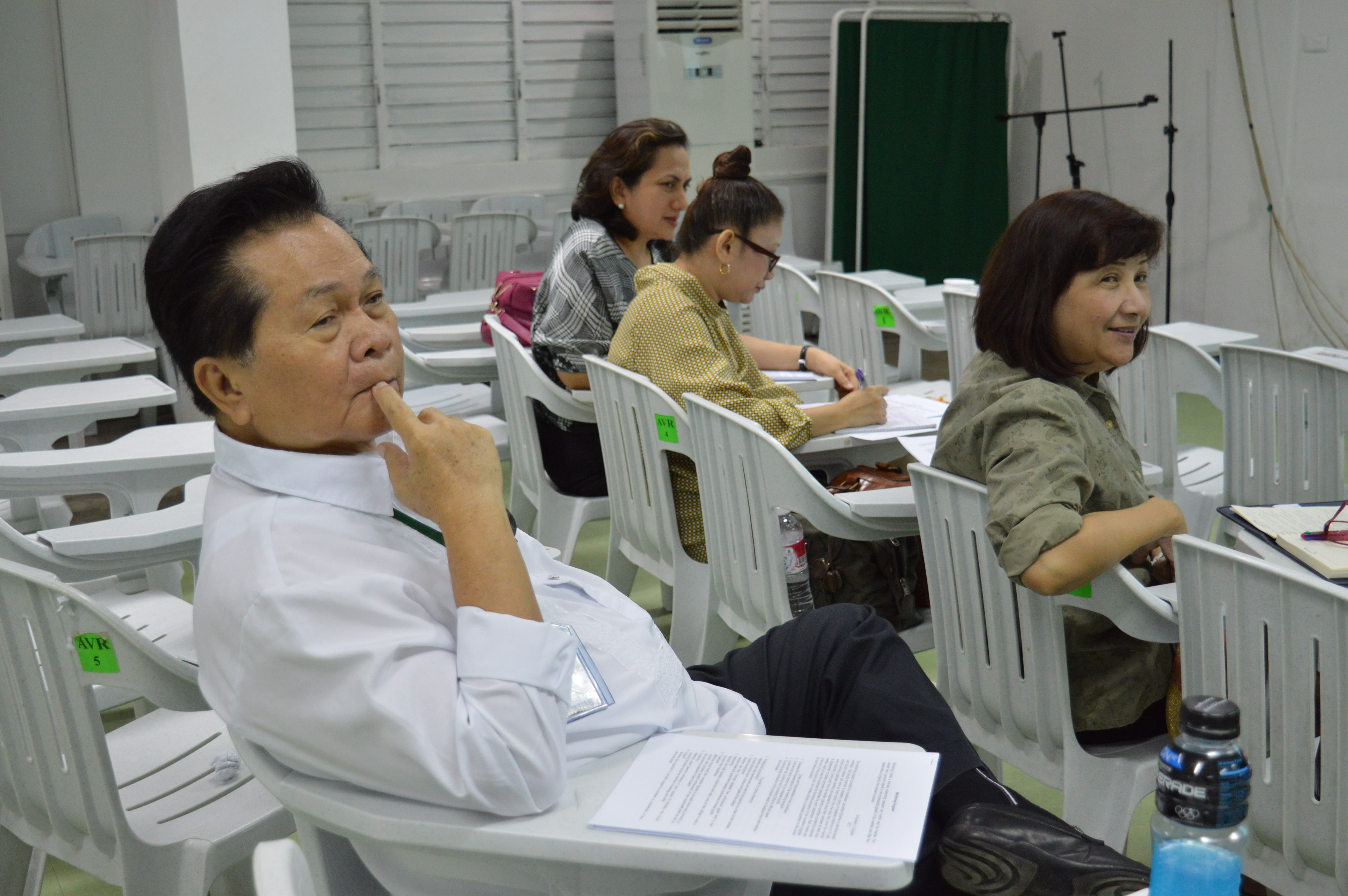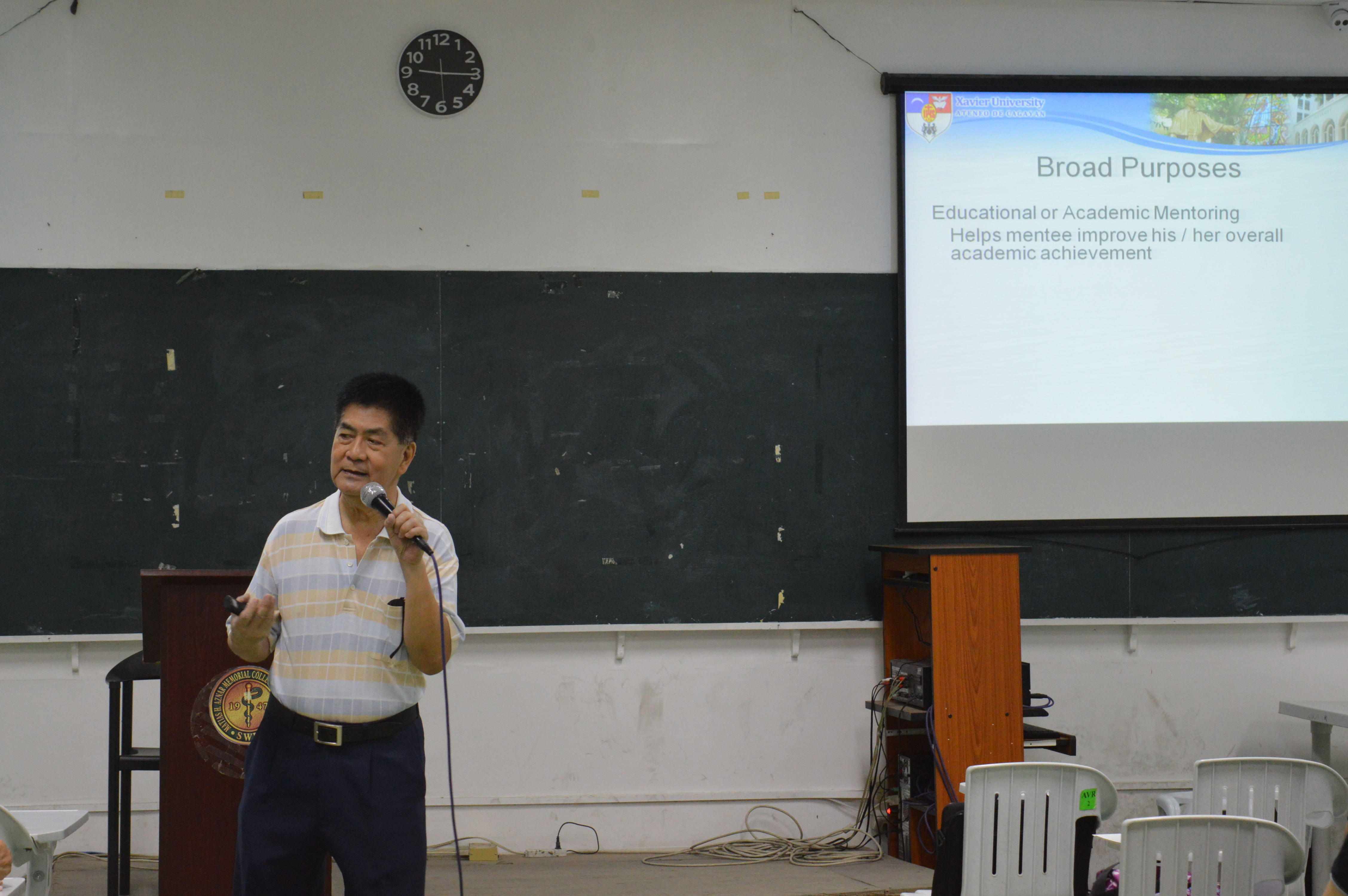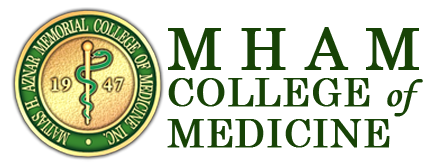
MHAM CM mentors
The first-ever seminar on “Mentoring” was successfully held at the Matias H. Aznar Memorial College of Medicine AVR last October 2I, 2016 from 8:45 in the morning until 3:45 in the afternoon.
Event speaker Dr. Agaton T. Panopio Jr. of Xavier University-Ateneo de Cagayan shared his expertise and valuable insights based from his fifty years of experience in the teaching field.
Headed by MHAM CM Dean Dr. Arlene M. Diaz, the event was well attended by thirty faculty-doctors and department chairs who were challenged to provide professional socialization and personal support to all MHAM students along with their medical studies and beyond.

 Mentors and beyond…
Mentors and beyond…
According to Associate Dean Dr. Panopio Jr. who has formally started mentoring to both students and faculties for five years now, mentoring means caring and supportive interpersonal relationship between mentors and mentees where the former offers support, guidance and assistance though a difficult period or works to correct earlier problems.
“Basically when we talk about mentoring the teacher is assigned to students and the purpose of this is for the teachers to be able to follow up the student as the aim of mentoring really is to make sure the student is able to finish. When we say mentoring it compasses everything and it includes counseling, serves as consultant-advisers or confidants to students and will serve as a guide”, said Dr. Panopio in an interview.

Interview with the speaker, Agaton T. Panopio Jr., MD, MHPEd
Based from his discussions, one of the aspects of being a mentor is one who must have an understanding of the concerns and experiences of new trainees such as concerns over subject knowledge, managing patients, new environment and assimilation of a lot of information in a short period of time.
Moreover, being a teacher, sponsor, advisor, agent, role model, coach and confidante are possible functions of a mentor.
He also emphasized that just as there are do’s and don’ts in every aspect of mentoring, a mentor does not lose critical oversight, do not allow friendship or favoritism and do not convey to the mentee that honest mistakes are career-altering disasters.
In addition, the event speaker presented categories of being a mentor which includes the Silent/Veteran Generation (1926-1945), Baby Bloomers (1946-1964), Generation X (1965-1981) and Generation Y/Millenials/Nexters (1982-2003), respectively.
Doctor-professor Dr. Charles Cabataña in a separate interview shared his personal views on the importance of mentoring to enhance students’ chances for success and greater career advancement potential in administration or sectors outside the institution. “It is important for faculty members to be able to know about mentoring because in a way this will help students also improve their outcomes during examinations”, said Dr. Cabataña who belongs to the Baby Bloomers mentor-category.
During the forum, Dr. Panopio urged the faculties to institutionalize the “Outstanding Senior and Junior Award” for MHAM mentors every two to three years and it must be based from the superiors and students’ feedback.
Accordingly, benefits of mentoring includes increase personal knowledge and awareness, enhance understanding of one’s role in imparting wisdom, advice, help and encouragement as an effective learning tool.
He also encouraged the attendees to have relaxation before the school year ends and meet as a group for a year-end evaluation and planning for the next school year.
For Dr. Jan Michael T. Lao who is MHAM’s lone full-time faculty-doctor and who belongs to the Generation Y/Millenials/Nexters mentor-category, he fully agrees with the speaker on the course of students who need coaching in time management skills where he himself experienced getting engrossed with work and forget the time which leads to delays. “For me, I also agree that this present generation wants to be highly compensated, needs someone who will guide for their journey in the medical studies and needs a lot of guidance from more experienced mentors. This workshop on mentoring is indeed essential to a one-on-one teacher-student relationship knowing that this generation is not as patient as our time and it needs adjustment on our part as mentors”, said this 32-year old doctor who is handling General and Clinical Pathology.
A MHAM CM product who took the board exam last 2012, Dr. Lao is hopeful that mentoring should not be only applied in the medical school but throughout the medical career of a physician especially on trainings. ‘I am also hopeful that through quality mentoring, it can become the venue in breaking the traditional practice of superiority among physicians particularly those who are above authority driven by the hierarchal practice”, he added.

“Why do Learners need Mentors?”
Challenged to be innovative and supportive MHAM mentors, Dr. Panopio encouraged them to be responsible to mentees such that the latter could compete other students globally in the ASIAN region.
At present, some MHAM faculties have enrolled for Master of Arts in Health Professions Education MHPEd at Xavier University.
MHAM CM Dean Dr. Arlene M. Diaz presented the plaque of appreciation to Dr. Panopio at the end of the seminar. (Ana Liza Abao)
